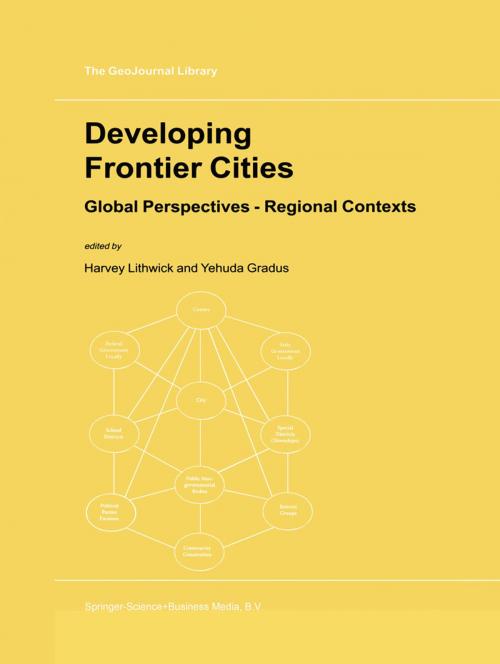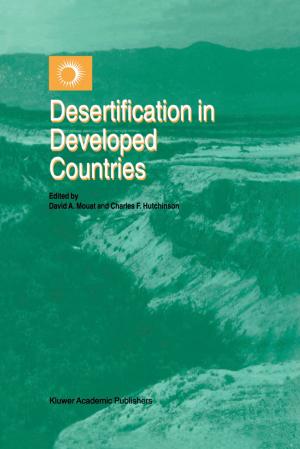Developing Frontier Cities
Global Perspectives — Regional Contexts
Nonfiction, Science & Nature, Science, Earth Sciences, Geography, Social & Cultural Studies, Social Science, Human Geography| Author: | ISBN: | 9789401712354 | |
| Publisher: | Springer Netherlands | Publication: | April 17, 2013 |
| Imprint: | Springer | Language: | English |
| Author: | |
| ISBN: | 9789401712354 |
| Publisher: | Springer Netherlands |
| Publication: | April 17, 2013 |
| Imprint: | Springer |
| Language: | English |
The Unique Nature of Frontier Cities and their Development Challenge Harvey Lithwick and Yehuda Grad us The advent of government downsizing, and globalization has led to enormous com petitive pressures as well as the opening of new opportunities. How cities in remote frontier areas might cope with what for them might appear to be a devastating challenge is the subject of this book. Our concern is with frontier cities in particular. In our earlier study, Frontiers in Regional Development (Rowman and Littlefield, 1996), we examined the distinction between frontiers and peripheries. The terms are often used interchangeably, but we believe that in fact, both in scholarly works and in popular usage, very different connotations are conveyed by these concepts. Frontiers evoke a strong positive image, of sparsely settled territories, offering challenges, adventure, unspoiled natural land scapes, and a different, and for many an attractive life style. Frontiers are lands of opportunity. Peripheries conjure up negative images, of inaccessibility, inadequate services and political and economic marginality. They are places to escape from, rather than frontiers, which is were people escape to. Peripheries are places of and for losers.
The Unique Nature of Frontier Cities and their Development Challenge Harvey Lithwick and Yehuda Grad us The advent of government downsizing, and globalization has led to enormous com petitive pressures as well as the opening of new opportunities. How cities in remote frontier areas might cope with what for them might appear to be a devastating challenge is the subject of this book. Our concern is with frontier cities in particular. In our earlier study, Frontiers in Regional Development (Rowman and Littlefield, 1996), we examined the distinction between frontiers and peripheries. The terms are often used interchangeably, but we believe that in fact, both in scholarly works and in popular usage, very different connotations are conveyed by these concepts. Frontiers evoke a strong positive image, of sparsely settled territories, offering challenges, adventure, unspoiled natural land scapes, and a different, and for many an attractive life style. Frontiers are lands of opportunity. Peripheries conjure up negative images, of inaccessibility, inadequate services and political and economic marginality. They are places to escape from, rather than frontiers, which is were people escape to. Peripheries are places of and for losers.















